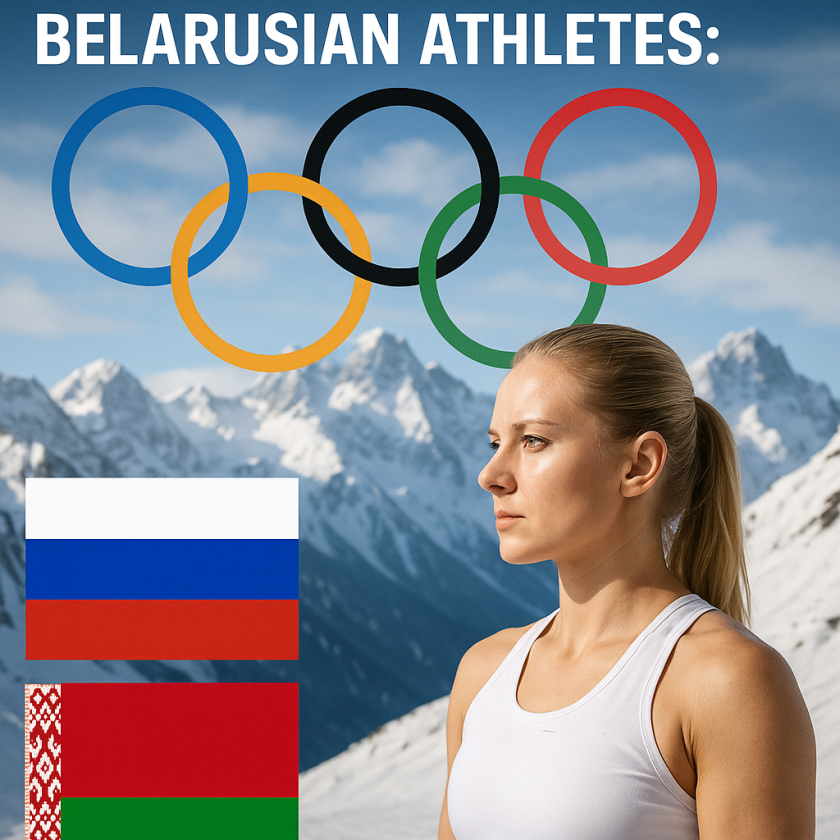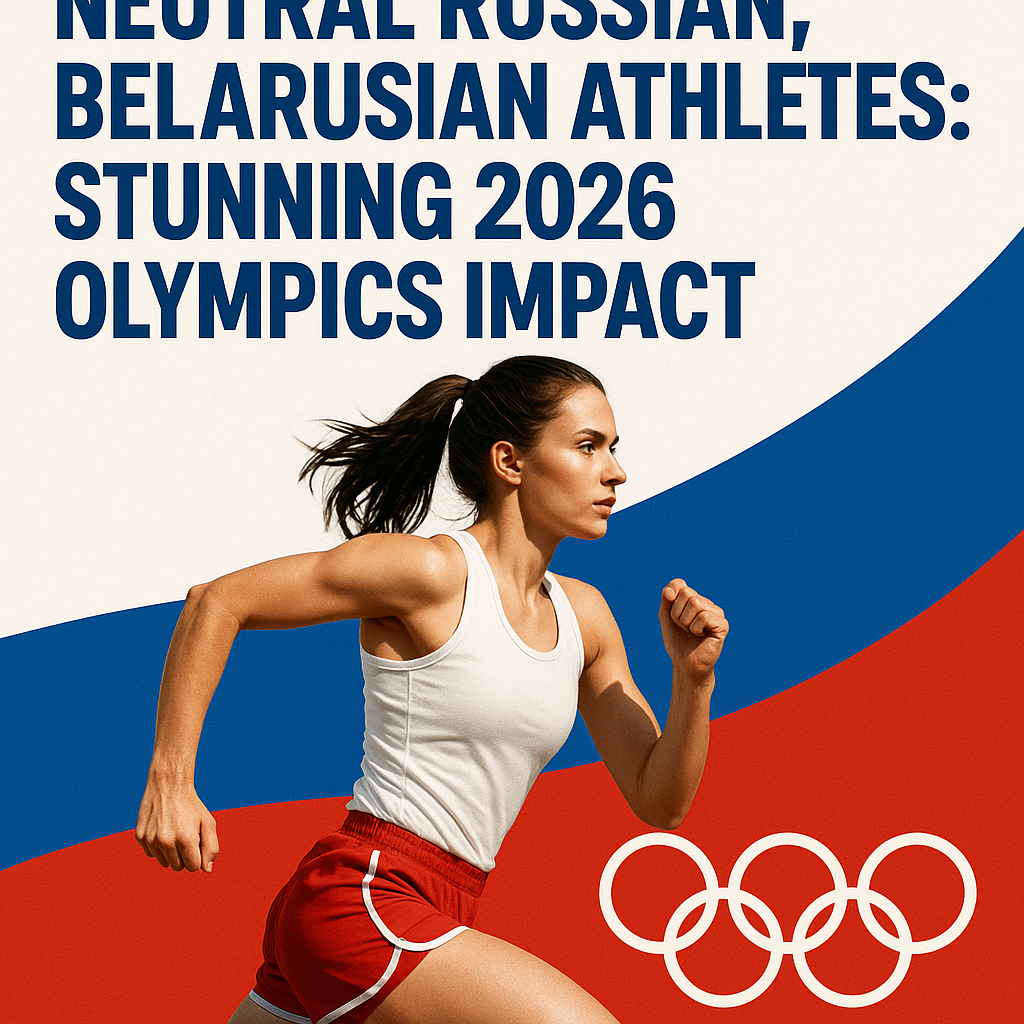Neutral Russian, Belarusian Athletes: Stunning 2026 Olympics Impact
Neutral Russian, Belarusian Athletes: Stunning 2026 Olympics Impact
The decision to allow Russian and Belarusian athletes to compete as neutral competitors in the 2026 Winter Olympics has generated considerable discussion. This scenario marks a pivotal moment not just for the athletes involved but also for the broader implications it carries for international sports diplomacy.
The Context of Neutrality in Sports

The backdrop of this decision stems from the ongoing geopolitical tensions, particularly following Russia’s invasion of Ukraine in 2022. In the aftermath, various international sports organizations imposed sanctions against Russian and Belarusian athletes. The International Olympic Committee (IOC) had previously urged federations to exclude these athletes from competitions, but considerable dialogue has arisen regarding the morality and effectiveness of such exclusions.
Recent announcements indicate that athletes from these nations will participate in the Olympics in 2026, albeit under a neutral flag. As reported by Al Jazeera, this decision aims to balance competitive fairness while acknowledging the complexities of the geopolitical landscape. The IOC’s statement highlights the need to ‘not discriminate against athletes simply based on their nationality.’ However, this has raised several critical questions and concerns.
Diverse Reactions to the Neutral Athlete Decision
Reactions to the neutrality ruling are deeply divided, encapsulating a range of emotions from disappointment to acceptance. Supporters of the decision argue that it offers a lifeline to individual athletes who have trained hard but find themselves caught in a political storm. For many athletes, the Olympics is a pinnacle of their careers, and being excluded due to their country’s political actions feels unjust.
Contrastingly, critics question the morality of allowing athletes from belligerent nations to compete. They contend that competing under a neutral banner could dilute the significance of the Olympic Games as a platform for peace and unity. Activists, as quoted by RT, fear that the presence of these athletes might overshadow the ongoing conflict and the suffering experienced by those affected by war. The sentiment is clear: how can we celebrate athletic prowess while significant human rights violations are ongoing?
The complexities become even more pronounced when considering the national pride and identity intrinsically linked to sports. As Sports Minister Dmitry Chernyshenko stated, “Athletes represent their countries, and their achievements are a reflection of national identity.” This raises the question: can one truly represent their country while competing as a neutral entity?
Potential Implications for Future Olympic Games
The implications of this decision extend beyond the 2026 Winter Olympics. Establishing a precedent allows for more nuanced conversations about national representation and accountability in sports. The 2024 Summer Olympics in Paris may have to grapple with similar issues if geopolitical tensions persist.
Moreover, this decision could influence future relationships between sports organizations and athlete representation. The focus on inclusivity, while commendable, opens the door to discussions about what it means to be “neutral.” Should athletes be held accountable for their government’s actions? This question strikes at the heart of sportsman’s ethics and collective responsibility against a backdrop of wars.
Future Olympic committees may need to establish clearer guidelines regarding neutrality. As sports continue to be a cultural touchstone globally, the stakes are high. The response to this decision will likely shape how international sporting events are perceived and managed in an increasingly polarized world.
Conclusion: Navigating Uncertainty
The participation of neutral Russian and Belarusian athletes in the 2026 Winter Olympics is undoubtedly a complex issue. By allowing these competitors to participate, the IOC seeks a balance that respects the athletic community while recognizing the political realities at play. However, this decision is fraught with moral queries and political implications, emphasizing the tension between sport and national identity.
Ultimately, this scenario challenges all stakeholders—athletes, organizers, and audiences—to consider the complex interplay of sports and politics. As the 2026 Olympics loom on the horizon, one thing remains clear: this journey will require thoughtful dialogue and a commitment to ensuring that sports remain a platform for peace and unity—even in the face of division.




































